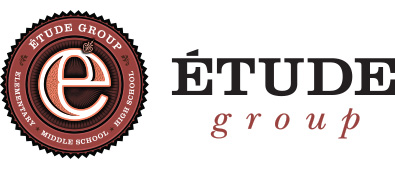Advisory training and guided discipline training for staff at IDEAS Academy and The Mosaic School was conducted on-site Aug. 15-17 and Aug. 22-24.
Nicole Frazier, a facilitator with Educators for Social Responsibility, conducted the training. ESR is a national leader in school reform. The organization was founded in 1982 and provides professional development, consultation, and educational resources to adults who teach young people in preschool through high school.
“Advisory is a student’s academic and social lifeline within a school,” said Rayna Rokicki, who teaches social studies and movement at Mosaic and serves as the movement specialist at the Elementary School for the Arts and Academics.
“In advisories, a teacher is assigned a group of 12 to 15 students and serves as their go-to person throughout their middle or high school career,” she explained. “Advisories are the place where a student can have a positive adult role model in their life who is both an advocate for the student but also a coach, helping them to reach their academic goals.” The advisory groups will meet daily at both schools.
“There is a lot of research out there that says when students feel a strong connection to a school community, are reflective and guided in their school career and have a strong relationship with at least one teacher, their chances of succeeding both in school and out of school increase dramatically,” Rokicki said.
“Guided discipline is geared more toward preventative measures to keep students on track,” explained IDEAS drama teacher Mike Q. Hanlon. “When students do fall short of expectations – as some inevitably will, whether it’s forgetting to bring supplies to class or getting into heated arguments with peers – guided discipline focuses students on repairing damage to personal relationships and school culture rather than meting out punitive punishments.”
Hanlon said the training was particularly helpful in regards to routines and rituals to use with the schools’ advisory groups.
“Each advisory period will have a structured opening and closing, but also a specific ‘gathering’ activity to get students engaged in their learning,” he said. “During the training, we tried several of the gatherings as a staff, ranging from a simple ‘paper toss’ to the dreaded ‘chocolate river.’ “
Paper toss is a way to get students to respond to prompts and questions in class, Hanlon explained. Students write their responses on slips of paper, everyone tosses their paper into the middle and then random responses are picked up and shared. Hanlon said “chocolate river” is a more elaborate team-building exercise.
The goal of Educators for Social Responsibility is to help educators establish practices that create safe, caring and equitable schools so that all students have the ability to succeed in school and in life.
The facilitator from ESR will return to The Mosaic School and IDEAS Academy at various times throughout the school year for follow-up training and guidance.

